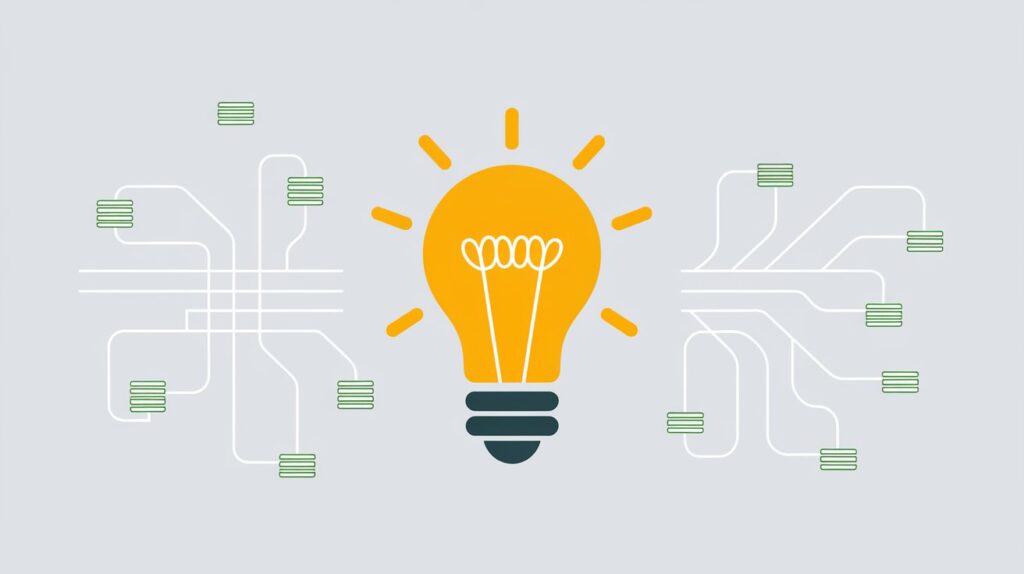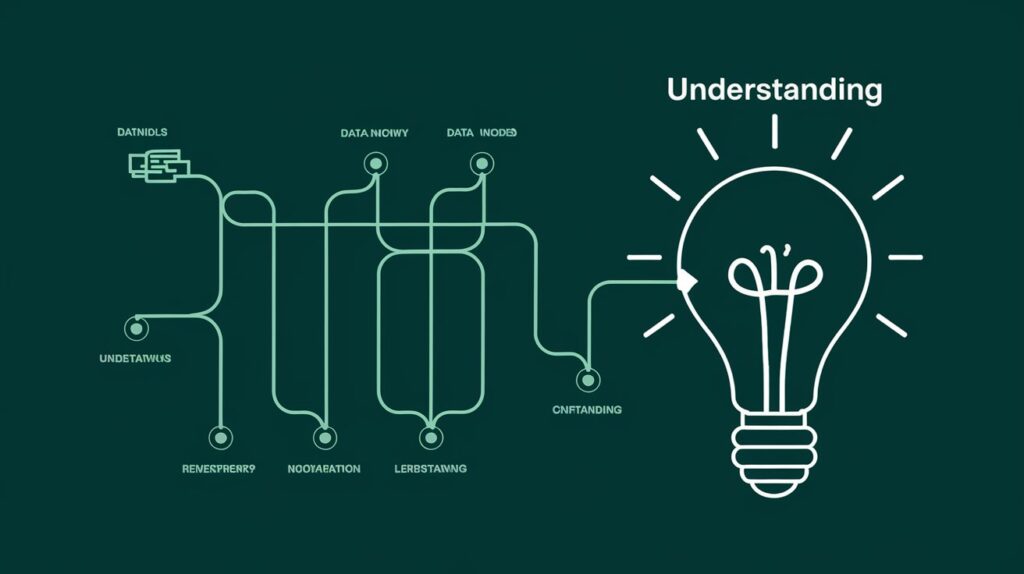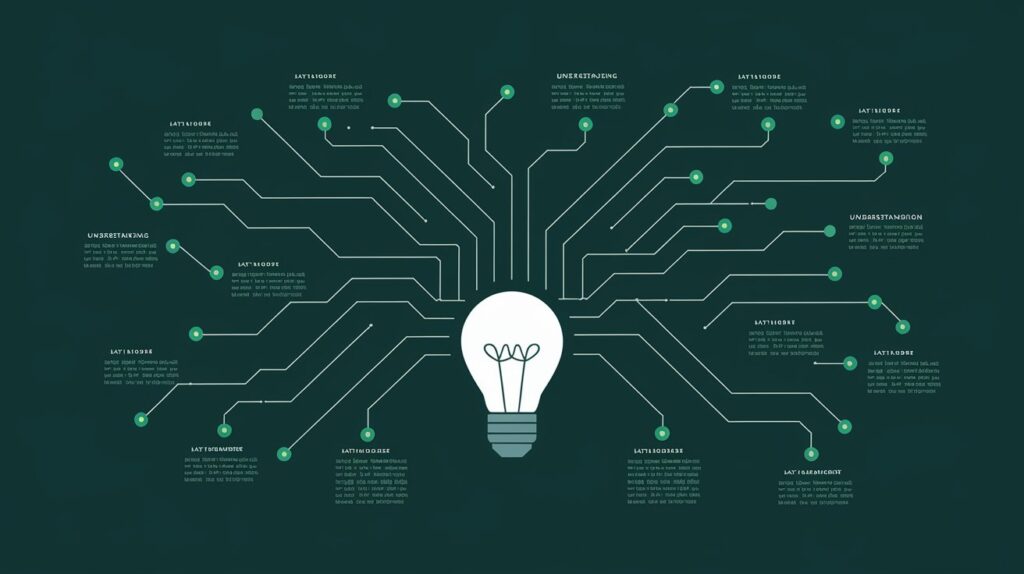1. Overview of AI Fundamentals
Artificial Intelligence (AI) involves creating systems that mimic human capabilities, such as recognizing patterns, making decisions, or solving problems. AI fundamentals refer to the core ideas that drive these systems—concepts like data handling, learning algorithms, and prediction mechanisms. These basics are critical for anyone entering the field of technology, as they explain how AI processes information and delivers results.
This guide is crafted for beginners with little to no technical experience. It presents a clear, step-by-step approach to learning AI fundamentals, emphasizing simplicity and accessibility. The focus is on building a solid base that prepares learners for the technological advancements expected in 2025, without relying on complex prerequisites.

2. Importance of AI Fundamentals in 2025
By 2025, AI is anticipated to influence a wide range of applications, from automated assistants to smart devices, due to improvements in processing power and data collection. Industry projections indicate significant growth in AI adoption, creating opportunities for those with foundational skills (Precedence Research). Reports also suggest a rise in entry-level roles requiring basic AI knowledge (World Economic Forum).
For beginners, AI fundamentals provide the groundwork to understand these systems and their uses. This knowledge enables individuals to operate AI tools, participate in introductory projects, and pursue further study. Mastery of AI fundamentals ensures competence in a technology-driven era, making it a vital starting point for newcomers.

3. Structured Steps to Learn AI Fundamentals
The following steps outline a logical sequence for beginners to acquire AI fundamentals. Each method is designed to be straightforward and cumulative, ensuring steady comprehension.
- Experiment with Interactive AI Platforms
Interactive platforms introduce AI fundamentals through direct engagement. Google’s Teachable Machine, for example, allows users to train models to identify objects—like images or sounds—using a simple interface. This demonstrates how AI learns from data, a key concept. Learners should spend 30 minutes daily experimenting with different inputs to see how adjustments affect outcomes, establishing an initial grasp of data-driven learning. - Review Introductory Video Lessons
Video lessons clarify AI fundamentals with visual and verbal explanations. Platforms like Khan Academy offer free tutorials on topics such as machine learning and basic algorithms, breaking down terms like “training” and “inference.” A recommended schedule is 1-2 hours per week to watch and summarize lessons, building a conceptual understanding of how AI systems function. - Practice Basic Coding for AI
Coding reinforces AI fundamentals by applying theory to practice. Python, a beginner-friendly language, is ideal for this purpose. Using Replit—a free online coding platform—learners can follow tutorials to write simple programs, such as sorting data or predicting categories. Completing a small project over 5-10 hours introduces principles like algorithmic logic and output generation, solidifying technical knowledge. - Explore Online Articles and Guides
Online content supplements AI fundamentals with broader context. Educational websites and blogs explain concepts like “data quality” or “model accuracy” in accessible language. Learners should allocate 1-2 hours weekly to read and note essential ideas, enhancing their ability to connect theoretical principles to real-world applications. - Engage with Learning Groups
Participating in communities strengthens AI fundamentals through discussion and collaboration. Forums like Reddit’s r/LearnAI or online study groups provide spaces to ask questions and share insights. A commitment of 2-3 hours monthly to interact with peers reinforces understanding of topics like data preparation and model evaluation, fostering practical application.

4. Potential Obstacles in Mastering AI Fundamentals
Several challenges may arise when learning AI fundamentals, particularly for beginners. Addressing these ensures effective progress.
- Complexity of Initial Concepts: Technical terms or dense explanations can intimidate newcomers. To mitigate this, learners should begin with practical tools like Teachable Machine, focusing on one idea—such as “input data”—before expanding to others, keeping AI fundamentals approachable.
- Rapid Progression Attempts: Moving too quickly to advanced topics can disrupt understanding. A paced approach, with 1-2 hours dedicated to each step, allows concepts like “learning algorithms” to settle before advancing, maintaining clarity in AI fundamentals.
- Inappropriate Tool Selection: Using complex software early on may confuse learners. Sticking to free, simple platforms like Replit or Khan Academy ensures AI fundamentals are learned effectively without unnecessary complications.
5. Essential Resources for AI Fundamentals
The following resources are recommended for their accessibility and alignment with beginner needs in learning AI fundamentals.
- Teachable Machine: A free, web-based tool by Google that enables users to train AI models without coding. Learners can upload sample data (e.g., photos) and observe how AI interprets it, introducing AI fundamentals like pattern recognition. Suggested use: 30 minutes daily for one week.
- Khan Academy: A platform offering free video lessons on AI topics, including machine learning basics. Weekly sessions of 1-2 hours help learners understand AI fundamentals such as “training datasets” and their purpose.
- Replit: A no-cost online environment for coding in Python. Following a beginner tutorial, learners can spend 5-10 hours creating a basic AI program, applying AI fundamentals like data processing and logic (Replit).
- Additional Reference: Online articles from reputable educational sources provide context for AI fundamentals, such as the role of algorithms, and should be reviewed for 1-2 hours weekly.

6. Conclusion
AI fundamentals serve as the essential building blocks for understanding artificial intelligence, offering beginners a clear entry into 2025’s technological environment. Through interactive platforms, video lessons, coding practice, online reading, and community engagement, learners can develop a comprehensive grasp of these principles. By overcoming common obstacles with appropriate tools and pacing, individuals can confidently master AI fundamentals, laying the foundation for future technical growth.
7. Frequently Asked Questions
What do AI fundamentals entail?
AI fundamentals include the basic concepts of artificial intelligence, such as data input, machine learning algorithms, and prediction processes. These principles explain how AI systems analyze information and produce outcomes.
Why are AI fundamentals significant for 2025 beginners?
In 2025, AI’s widespread use across technologies necessitates basic understanding. AI fundamentals equip beginners to work with AI tools and explore opportunities in a growing field, as supported by industry trends.
How should beginners approach learning AI fundamentals?
Beginners should start with practical tools like Teachable Machine, progress to video lessons on Khan Academy, and practice coding on Replit. This sequence builds AI fundamentals from exploration to application.
What difficulties might occur in learning AI fundamentals?
Difficulties include complex terminology, rushed learning, and unsuitable tools. These can be addressed by starting simply, pacing study at 1-2 hours per topic, and using beginner-friendly resources for AI fundamentals.
Which resources best support AI fundamentals learning?
Teachable Machine, Khan Academy, and Replit are optimal for beginners. These tools provide hands-on, visual, and coding experiences to master AI fundamentals efficiently.
